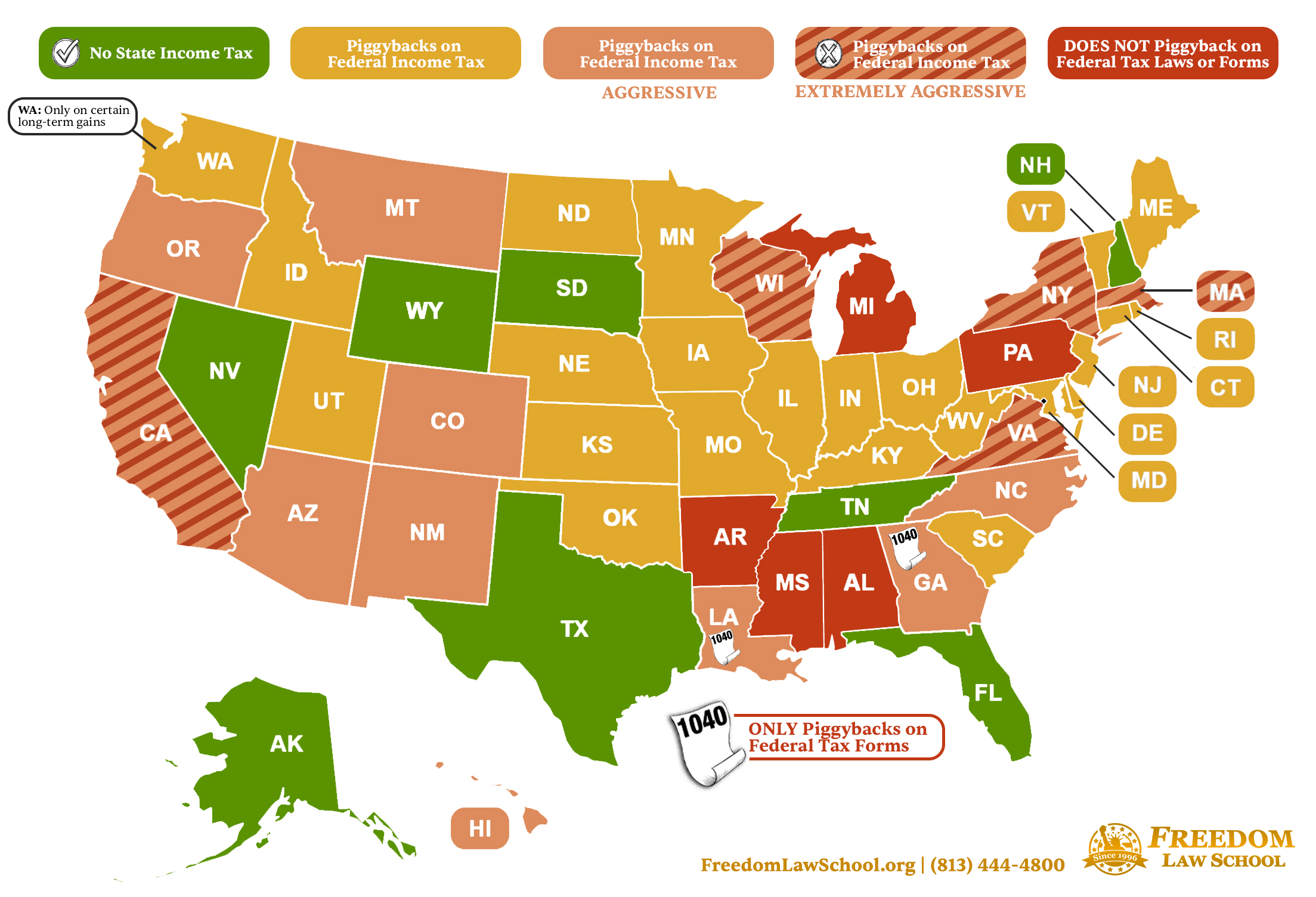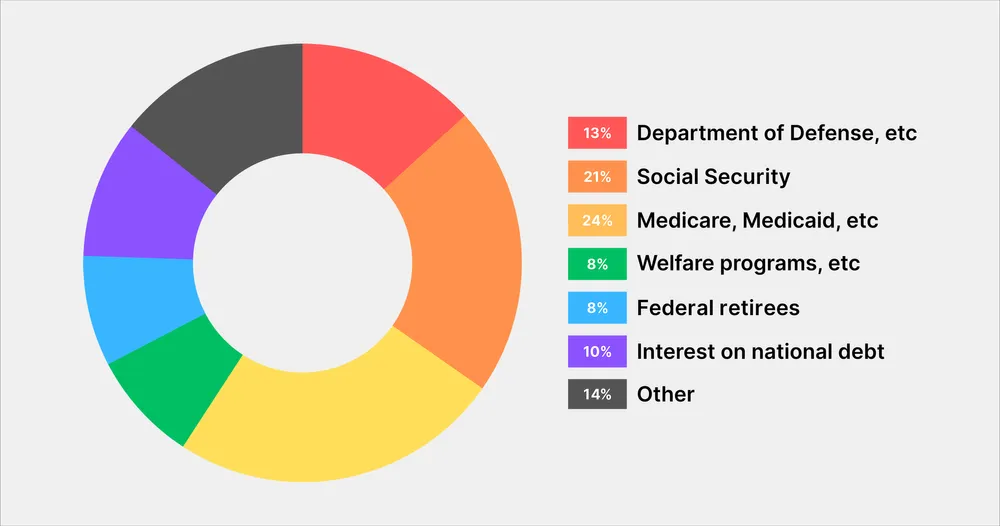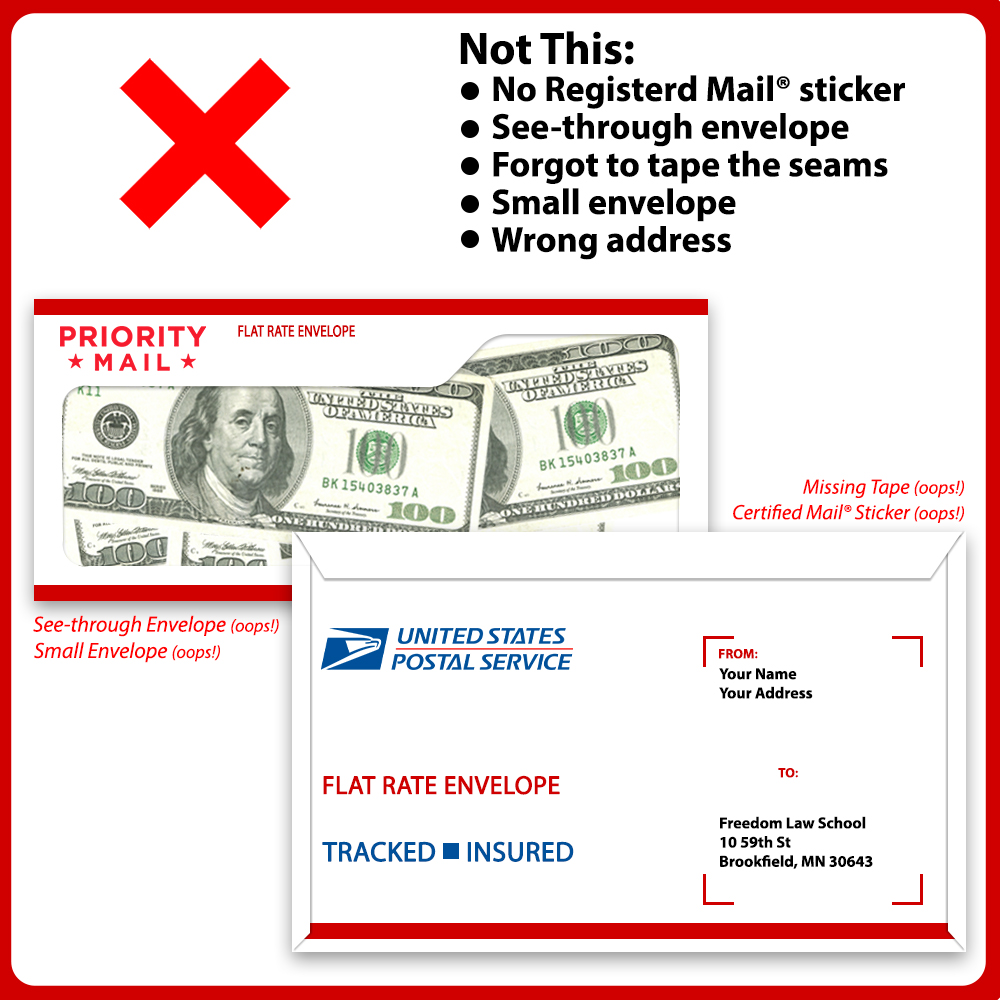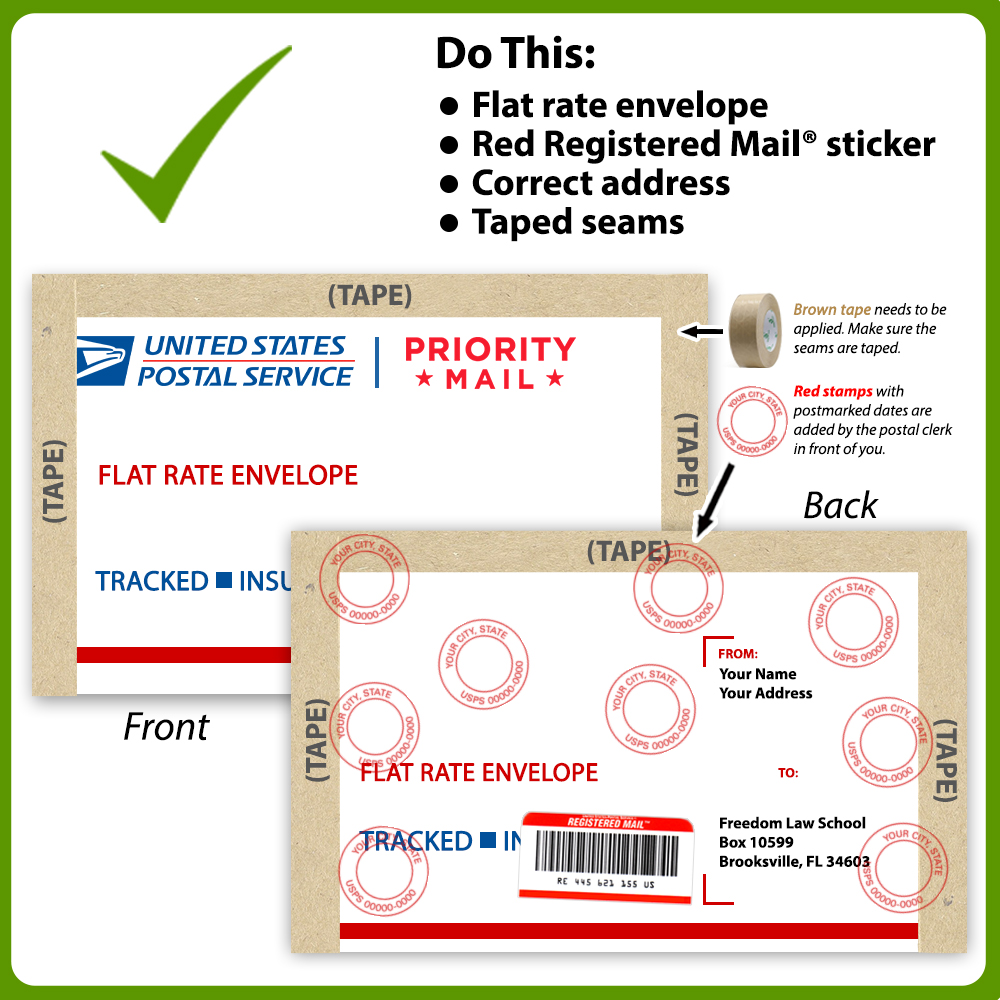About Freedom Law School
In 1992, Peymon Mottahedeh uncovered the staggering truth that 99% of American’s are NOT LEGALLY OBLIGATED to pay Federal Income Tax. Peymon founded Freedom Law School (FLS) in 1996 as a mission to spread this truth & liberate fellow American’s from the blatant DECEPTION, robbery, & slavery of the American People by the IRS.
FLS’s main goal of EMPOWERING American’s to be FREE is accomplished by EDUCATING them, the importance of which is characterized by the following quotes from our 3rd President, Thomas Jefferson…
“An educated citizenry is a vital requisite for our survival as a free people.” -- Thomas Jefferson
“If a nation expects to be ignorant and free, in a state of civilization, it expects what never was and never will be.” -- Thomas Jefferson
We believe as more Americans understand their rights & the law, the better equipped we are to defend the very LIBERTY our Founding Fathers fought & died for. We provide a PRACTICAL STEP for American’s to fight back against the CORRUPT Government by empowering Americans to keep the money they EARN rather than paying Washington taxes THEY NEVER OWED IN THE FIRST PLACE.
We uncover the misconception of the IRS being some powerful entity armed with the capacity to track each American, & instead PROVE the IRS as a highly dysfunctional, weak, incompetent, & disorganized BUREAUCRACY if you stop filing 1040 income tax confession forms. We teach you to strictly follow the law as published on U.S. Government Official Legal Websites including tax laws passed by Congress, U.S. Treasury regulations, & U.S. Supreme Court Decisions as well as the 1040 income tax form & it’s instructions. By following this system over the past 30+ years, NO STUDENT has ever had any of their pay checks levied, bank accounts seized, or been imprisoned for not filing & paying Federal Income Taxes. Become a modern-day Founding Father today by learning more here…
Do I have to pay federal income tax?
There is a tiny portion of the population that is required to file and pay federal income taxes. To identify if you are among that tiny portion, we must first take a look at 26 USC 79(a), which is Title 26 (the Internal Revenue Code) of the United States Code, in Chapter 79 (Definitions). Here we will look at both definitions of the“United States” and “State,” and how they should be used within the context of this chapter.
(9) United States
"The term 'United States' when used in a geographical sense includes only the States and the District of Columbia."
Notice that the term “United States” is defined as including the States and DC. Well, what does “State” mean? It gives us a definition for that too…
(10) State
"The term 'State' shall be construed to include the District of Columbia, where such construction is necessary to carry out provisions of this title."
The term “State” is defined as including D.C., but it doesn’t name any other states. Meese v. Keene (1987) that legal definitions exclude unstated meanings of that term, and from the Stenberg v. Carhart (2000) Supreme Court decision that "when a statute includes an explicit definition, we must follow that definition, even if it varies from that term’s ordinary meaning". We also know that “includes” can be synonymous with “means” from the Supreme court case Helvering v. Morgan’s, Inc. (1934).
In addition, the “United States” is defined in several other legal texts as well. Notice Title 8’s definition of “United States” in 8 USC 1101, which deals with Aliens and Nationality says:
"(38) The term 'United States', except as otherwise specifically herein provided, when used in a geographical sense, means the continental United States, Alaska, Hawaii, Puerto Rico, Guam, the Virgin Islands of the United States, and the Commonwealth of the Northern Mariana Islands."
And the definition of “United States” from 26 USC 4612, which deals with the taxation of petroleum and crude oil says:
"The term 'United States' means the 50 States, the District of Columbia, the Commonwealth of Puerto Rico, any possession of the United States, the Commonwealth of the Northern Mariana Islands, and the Trust Territory of the Pacific Islands."
So clearly we can agree that, lawmakers know how to define “United States” accurately. Even section 7701 of Title 26 (Internal Revenue Code), which defines general terms for the IRC, uses a very specific definition which excludes most American citizens.
What about businesses?
The same logic and understanding from the previous text is applicable in the definition of “trade or business” in 26 USC 79(a) which says:
(26) Trade or business
The term “trade or business” includes the performance of the functions of a public office.
This definition includes federal contractors, or anyone who is paid by the federal government. Regardless of any dictionary definition of a trade or business, the IRC defines that term as the performance of the functions of a public office.
How many Americans are required?
The only people who are required to file and pay federal income taxes are therefore (1) citizens and residents of Washington D.C.About 99% of Americans are not required to file and pay federal income tax, based on the law as its written.
How do I stop paying federal income tax?
The IRS is entirely dependent on the taxpayer filing a return. See this quote from former IRS Commissioners Fred Goldberg and Charles Rossotti (Source):
What’s critical here is that substantially all of the revenue increase does not come from IRS audits—it comes from taxpayers … when they file their returns.
By filing an income tax return, you admit to owing the IRS money (even if you don’t owe anything). You put the noose around your own neck. By filing, you give the IRS power to audit you, empty your bank account, steal your property, and put you in prison.
If you’re part of the 99% that are legally not required to file and pay federal income tax, you don’t have to claim anything — you just don’t file a tax return.
What about withholding?
If your employer requires you to fill out an IRS Form W-4 as a condition of employment or payment, and you are not a resident of DC nor a federal employee/contractor, you may provide your employer an amended W-4 Exempt form package. This form includes:
- A statement that the form has been signed “under duress” (involuntarily), since you are being forced to fill it out.
- An explanation of who the language of federal law says is an “employee” subject to income tax withholding, and that it doesn’t apply to you.
- A statement that the form is a Release of Employer Liability for your employer when they stop withholding federal income taxes from your pay.
- Attachments with the IRS instructions on how to file Exempt from Withholding, copies of the specific IRC paragraphs in reference, and the Supreme Court decisions for your employer to verify that your exemption is legal and correct.
You can find this amended W-4 form, alongside additional information on the W4 Withholding Package page.
What if they take me to court?
Based on the findings above, 99% of Americans are not legally required to file and pay federal income taxes. Here are some things to keep in mind when asking this question.
It’s unlikely — the IRS is mostly bluff.
The IRS is entirely dependent on you admitting that you owe them money. If you do not file and therefore do not claim to owing money, the IRS is highly unlikely to pursue you.
There are ~80 million income tax non-filers in America, and the IRS is already struggling to keep up with filers who voluntarily agree to pay taxes. Forced collections have dropped by ~93% since 2011, and regardless, pursuing non-filers is not profitable for the IRS (2.25x return) compared to collections from filers (300x return).
Learn more about the IRS’ bluffs here.
You are protected by petitions.
The petitions state your findings of federal income taxes in clear terms, and ask your representatives to correct you if they deem them inaccurate. The right to petition your elected officials is protected by the First Amendment:
Congress shall make no law respecting … the right of the people peaceably to assemble, and to petition the Government for a redress of grievances.
By sending petitions to Congress (and keeping the stamped certified mail receipts), you have a record of sending these documents to your representatives.
Your representatives will do one of the following:
- They will usually ignore your letter entirely.
- They may have their staff send you a “politically correct” letter, thanking you for expressing your concerns. The letter will not indicate that your representative (or their staff) will act on these concerns, that they understood your concerns, or that they even read the letter at all. The representative’s intention is usually to ignore you and your concerns without appearing to have ignored you outright.
- They may send you an IRS publication or refer you to the IRS in some other way. However, it is critical to remember that an IRS publication is not law, because the IRS does not write laws — it is only authorized to execute laws written by Congress.
- Rarely, they may paraphrase a law (or an inferior court case opinion) incorrectly or out of context without attaching a copy, or cite court case opinions ruling on issues that you never argued in the first place.
This protects you from being charged with tax evasion or other charges, because you have a record that before you refused to file, you expressed to the government that you are open and willing to pay your “fair share” of taxes, if they can show you the law which compels you to do so. Since they cannot show you the law, you do not have to file.
If you are a Restore Freedom Plan member, Freedom Law School will send these petitions for you. Click here to learn more about the Restore Freedom Plan. If you are not a Restore Freedom Plan member and you’d like to send petitions yourself, you may use our free Petitions to Congress tool.
Our 100% Guarantee.
In the event that your tax situation necessitates legal action, we will provide representation for you. Additionally, should the outcome of a court case result in lost funds, we will reimburse any money taken by the IRS within 30 days.
Members of the Restore Freedom Plan enjoy several other benefits, as well:
- Expert correspondence handling. Should you ever find yourself in receipt of correspondence from the IRS, state revenue agencies, or any third parties associated with your tax affairs, Freedom Law School will draft a response on your behalf.
- Unlimited consultations. We will provide you with answers for any tax-related queries you may have.
- Referral rewards. We believe that good news is meant to be shared. For any new member you introduce to the Restore Freedom Plan, you will receive 50% of their first-year membership.





